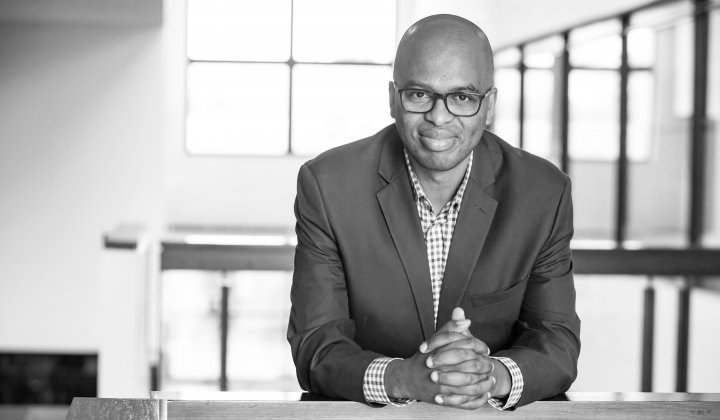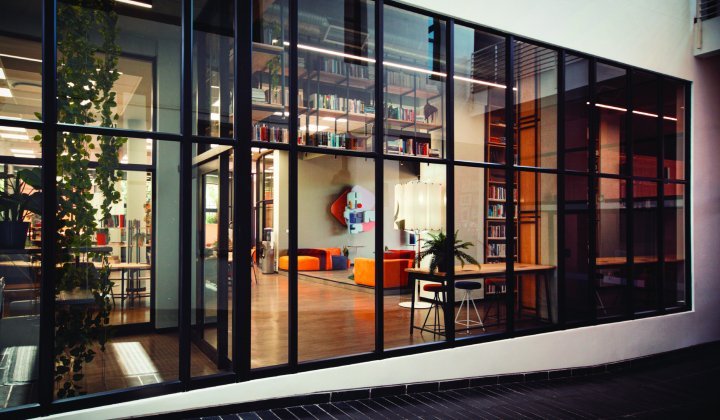Our reflections on 2020 were informed by feedback from our stakeholders. At GIBS, feedback is not episodic; it is a continuous process and one to which we are accustomed. We solicit and receive feedback from our students and clients on a daily and weekly basis. We enjoy measuring our performance – it keeps us humble.
We were interested, during GIBS’ 20th anniversary year, to use engagements with our stakeholders to learn and understand how the challenges we’ve navigated over the past two decades, and the lessons we’ve taken on board as a business school, have enabled us to help our clients and students cope with their learning journeys during the pandemic-induced disruption.
Pirouetting from the face-to-face foundations for which we are renowned – famously laid by founding Dean Professor Nick Binedell and Professor Karl Hofmeyr rushing around Johannesburg having “cups of tea all over town” with top management teams – we were quick to embrace digital learning delivery methods.
Our digital acceleration was made possible by early adoptions in digital technologies over the first 20 years of our existence. We created a solid foundation for the unforced acceleration of our digitalisation strategy through our early use of bulk emailing to distribute our digital newsletter, Diarize Now. We experimented with GIBS FN (an early form of the podcast), embraced the YouTube platform and, latterly, built an on-campus studio to create digital content. We also thanked our lucky stars that, in the early 2000s, we became one of the first business schools in the world to introduce online applications. Early on in our history, we embraced a comprehensive digital learning-delivery strategy and adopted the use of blended learning. This culture of experimentation and adoption of new technologies meant that when we were forced into a digital-only world by the hard lockdown, we were better equipped to make a full shift.
It soon became clear, however, that our emergency shift to fully digital teaching could not simply seek to replicate the physical world in a digital space. We had to reframe the delivery into shorter learning interventions to guard against delegate fatigue and to maintain a high-touch digital experience in a low-touch physical environment. We spent more time engaging with our clients to ensure their return on investment and to structure programmes aimed at meeting their evolving needs during this uncertain time. We brought our programme teams, faculty and integrators closer to our clients, drawing in relevant skills and opening up different working methods to ensure impact.
We enjoy measuring our performance. It keeps us humble.
We also stopped to listen and understand the stresses and demands being felt by our clients and students. Many of our students battled to move into an online teaching space. Recognising that we needed to ensure the mental health of our students to enable their academic health, we offered additional support and coaching. Later we responded to calls from our students, as well as the guidance offered by government and scientists when we reopened the GIBS campus to recommence physical classes under strict rules and sanitisation requirements. We embraced the reality and theatre of sanitisation and a low-touch environment. This was not easy for a business school sought after for its high-touch experiences. As an institution, we lowered our guard. We engaged about our community’s challenges and fears, ranging from health concerns to coping with the realities of working from home, dealing with the anxiety of new routines, retrenchments and salary cuts as well as helping our employees, students and clients to reflect on race, triggered by the Black Lives Matter movement.
My colleagues and I agree that, as a result of Covid-19, we have become more relevant, empathetic and responsive to client queries, topic prioritisation and programme delivery. We were stretched to really think about our unique value proposition, as students and clients became more discerning about where to spend their hard-earned money with an increasing demand for us to demonstrate a return on their investment with us. We’ve also seen that they crave the guidance and insights we have to offer. This need will be accelerated as the world emerges from the lockdowns of 2020. We recognise that we have a responsibility to assist our students and clients in addressing the health of their careers and their businesses, because only when careers and business are healthy can we begin to inspire our students, alumni and their businesses to flourish.
The closure of companies around the world this year underscored the critical nature of business as a force for good and as an essential component in ensuring the well-being of humanity. We have a vital role to play in helping businesses and our clients to improve the health and longevity of their organisations at this pivotal time. While the world around us may be changing, we continue to believe unwaveringly in the higher purpose of business and its critical importance to the functioning and health of society. This is why, in the years ahead, we will continue to partner with our clients and students to learn from the events of 2020 and to position themselves to effectively and strategically shift their businesses in the face of unprecedented disruption.
...only when careers and business are healthy can we begin to inspire our students, alumni and their businesses to flourish.
As the campus reopens and we knock on the door of a new year, we can all be assured of one thing: 2021 will continue to challenge governments, organisations, leaders, teams and employees. The after-effects of this monumental year will be felt in boardrooms and factories the world over, driving new ways of working, spurring on greater intra-industry collaboration and necessitating the repositioning of business structures and workflows.
Our role as a leading business school from Africa in this changing social and business landscape has never been more assured and more essential as we can provide both the anchor and the beacon that will guide students and the broader business community into a prosperous future.



